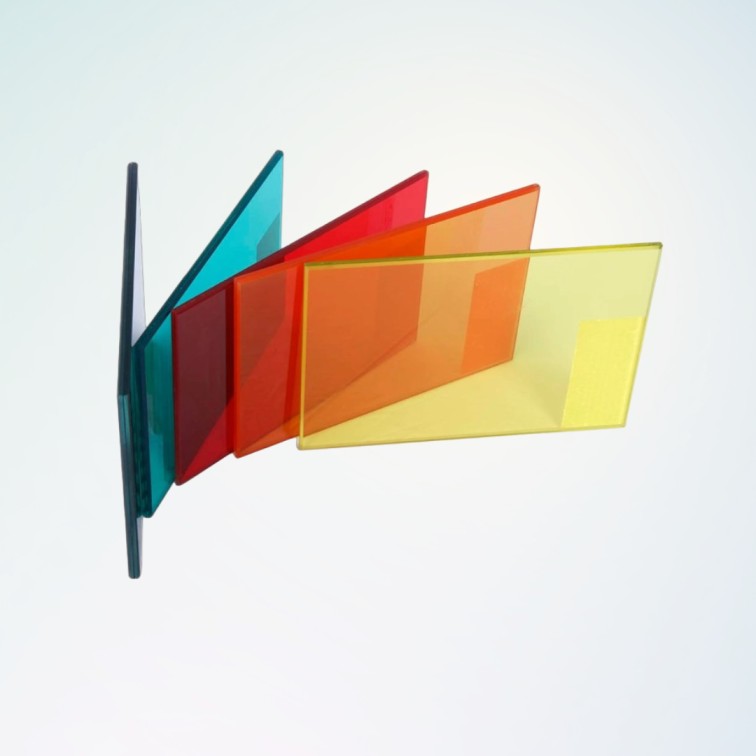
Tinted Glass
Tinted glass is a specialized type of glass with added color, designed to offer both aesthetic appeal and functional benefits in architectural applications. The tinting is achieved by adding metal oxides or other compounds to the glass during manufacturing, altering its optical properties. Tinted glass is known for its ability to reduce glare, control solar heat gain, and provide a sense of privacy while adding a touch of sophistication to buildings.
Key Characteristics
Solar Control: Tinted glass effectively absorbs and reflects a portion of the solar radiation that passes through it. This feature reduces heat transmission into buildings, contributing to improved energy efficiency and indoor comfort.
Glare Reduction: The tinted coating minimizes glare caused by direct sunlight, creating a more comfortable and visually appealing environment. This is particularly beneficial in spaces with large windows or exposed to intense sunlight.
UV Radiation Protection: Tinted glass helps block a significant portion of ultraviolet (UV) radiation. This UV protection is essential in preserving interior furnishings, artwork, and preventing potential health hazards associated with prolonged exposure to UV rays.
Common Uses of Tinted Glass
Windows and Doors: Tinted glass is widely used in residential and commercial windows and doors. It enhances the exterior aesthetics of buildings while providing occupants with a comfortable indoor environment by controlling heat and glare.
Automotive Glazing: Many vehicles are equipped with tinted glass for improved comfort and safety. Tinting reduces heat inside the vehicle, protects occupants from UV rays, and enhances the overall appearance of the vehicle.
Architectural Facades: Incorporating tinted glass into building facades adds a contemporary and sophisticated look. It contributes to the overall design language of modern architecture while addressing solar control requirements.
Send enquiry Pay Online
Pay Online